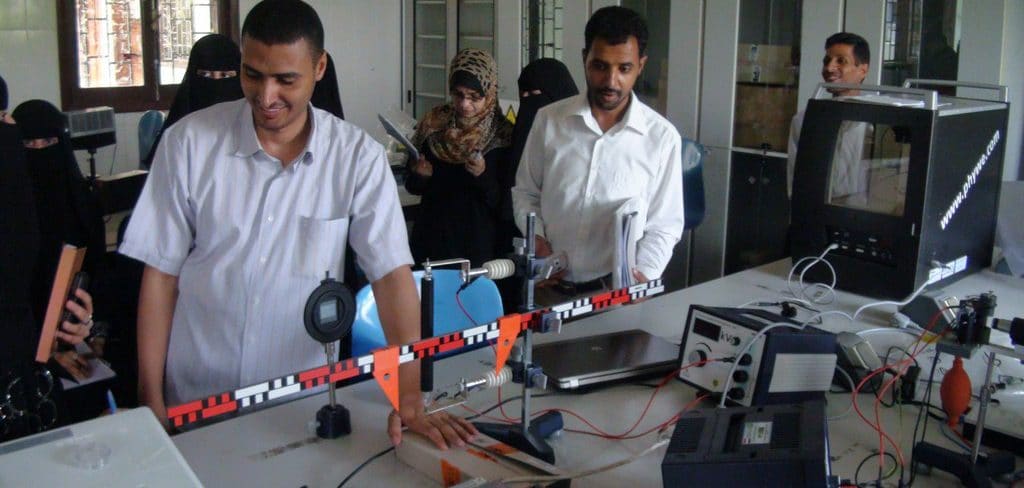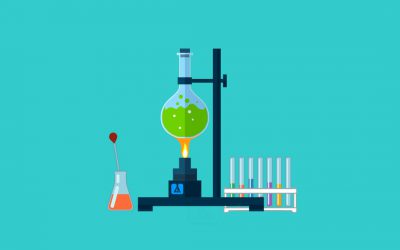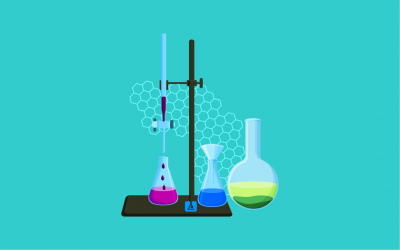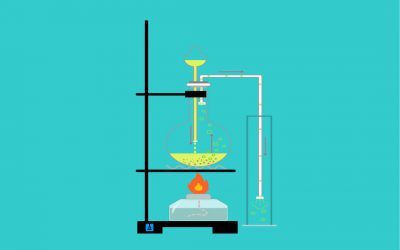We supply an integrated physical chemistry training lab system covers the necessary laboratory techniques for physical measurements, error analysis and statistics through conducting experiments on gases, calorimetry, equilibrium and phase changes as well as advanced laboratory skills and techniques to study chemical reactions kinetics and mechanisms.
The training lab of physical chemistry enables students to apply many experiments and activities such as:
- Equation of state for ideal gases. (Gas laws: Gay-Lussac, Amontons, Boyle)
- Gay-Lussac’s law of volumes
- Law of integer ratio of volumes according to Gay-Lussac’s law of chemical volumes
- Thermal equation of state and critical point
- Maxwellian velocity distribution
- The viscosity of Newtonian and non-Newtonian liquids (rotary viscometer)
- Viscosity measurement with the falling ball viscometer
- Determining the molecular weight of a polymer from intrinsic viscosity measurements
- Heat capacity of gases.
- Partial molar volumes
- Determination of the enthalpy of combustion with a calorimetric bomb
- Determination of the heat of formation of water
- Determination of the heat of formation for CO2 and CO (Hess’s law)
- Determination of the heating value of fuel oil and of the calorific value of olive oil
- Thermal expansion in solids and liquids
- Adsorption isotherms
- Determination of the enthalpy of vaporization of liquids.
- Determination of the hydration enthalpy of an electrolyte (solution enthalpy)
- Determination of the enthalpy of neutralization.
- Determination of the mixing enthalpy of binary fluid mixtures.
- Adiabatic coefficient of gases – Flammer Feld oscillator
- Determination of the heating values of solid and gaseous fuels in a horizontal calorimeter
- Hess’s law.
- Determination of the melting enthalpy of a pure substance.
- Reaction rate and activation energy of the acid hydrolysis of ethyl acetate
- Kinetics of the inversion of saccharose
- Briggs-Rauscher reaction. – classical clock reaction
- Determination of the Michaelis constant.
- Enzyme inhibition (poisoning of enzymes)
- Reaction kinetics with measure Spec
- Temperature dependence of conductivity.
- The conductivity of strong and weak electrolytes.
- Determination of the activity coefficient by conductivity measurement.
- Nernst equation.
- Determination of Faraday’s constant
- Characteristic curve and efficiency of a PEM fuel cell and a PEM electrolyser
- Electro gravimetric determination of copper
- Electrode kinetics: The hydrogen overpotential of metals.
- Boiling point elevation – Raoult’s law
- Freezing point depression
- Boiling point diagram of a binary mixture
- Condensation of gases through an increase of pressure and through cooling
- Sublimation and solubility of iodine
- Steam distillation
- Rectification – the number of theoretical trays in a distillation column
- Fractional distillation with the bubble tray column.
- Solubility diagram of two partially miscible liquids
- Miscibility gap in a ternary system
- Franck-Hertz experiment with a Ne-tube
- Franck-Hertz experiment with a Hg-tube
- Fine structure: one and two-electron spectra
- Balmer series/ determination of Rydberg’s constant
- The specific charge of the electron – e/m
- Stern-Gerlach experiment
- Fundamental principles of Nuclear Magnetic Resonance (NMR)
- Dispersion and resolving power of a grating spectroscope



